Why Fukuoka is Japan’s Must-Visit Gem: 12 Soulful Charms from Ramen to Shrines
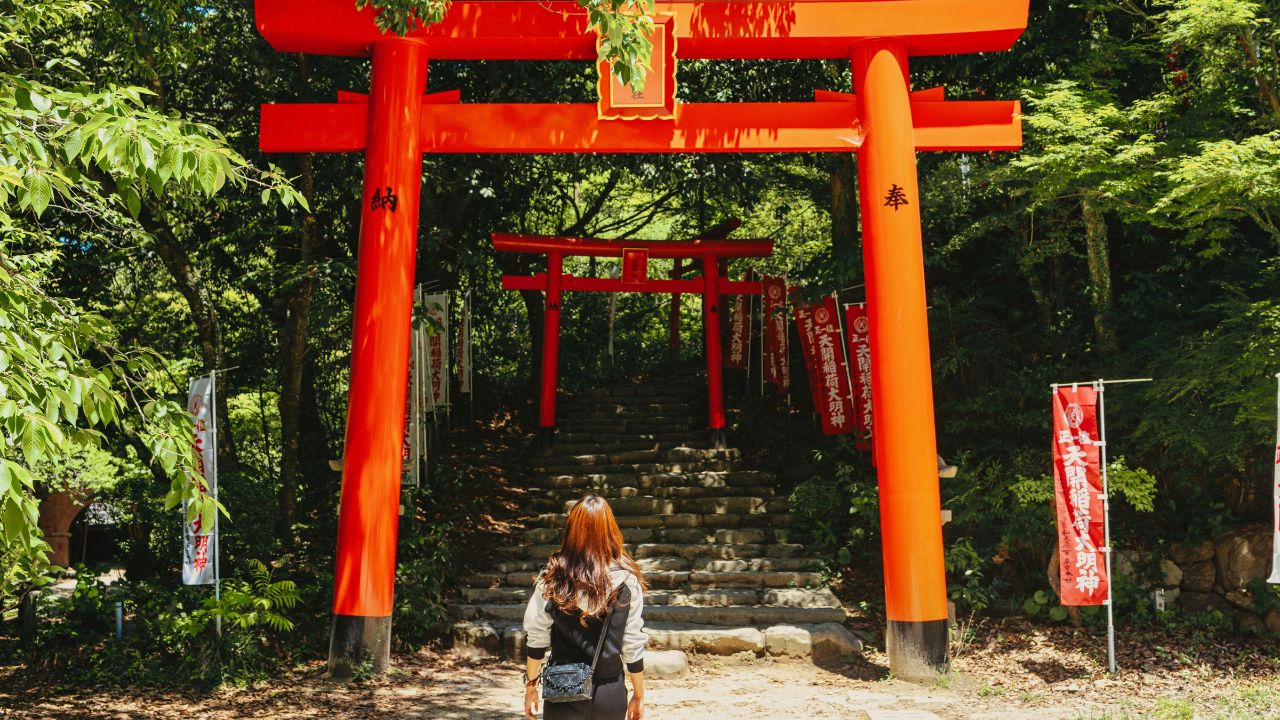
Fukuoka blends history, flavor, and calm coastal beauty in one unforgettable destination. While often overlooked for Tokyo or Kyoto, this laid-back gem offers something different, less rushed, more soul. With its legendary ramen, friendly street stalls, ancient shrines, and ocean views, Fukuoka invites you to slow down and soak it all in. Whether it’s your first time in Japan or your fifth, these 12 spots prove why this southern city deserves a place on every traveler’s list.
Hakata Ramen
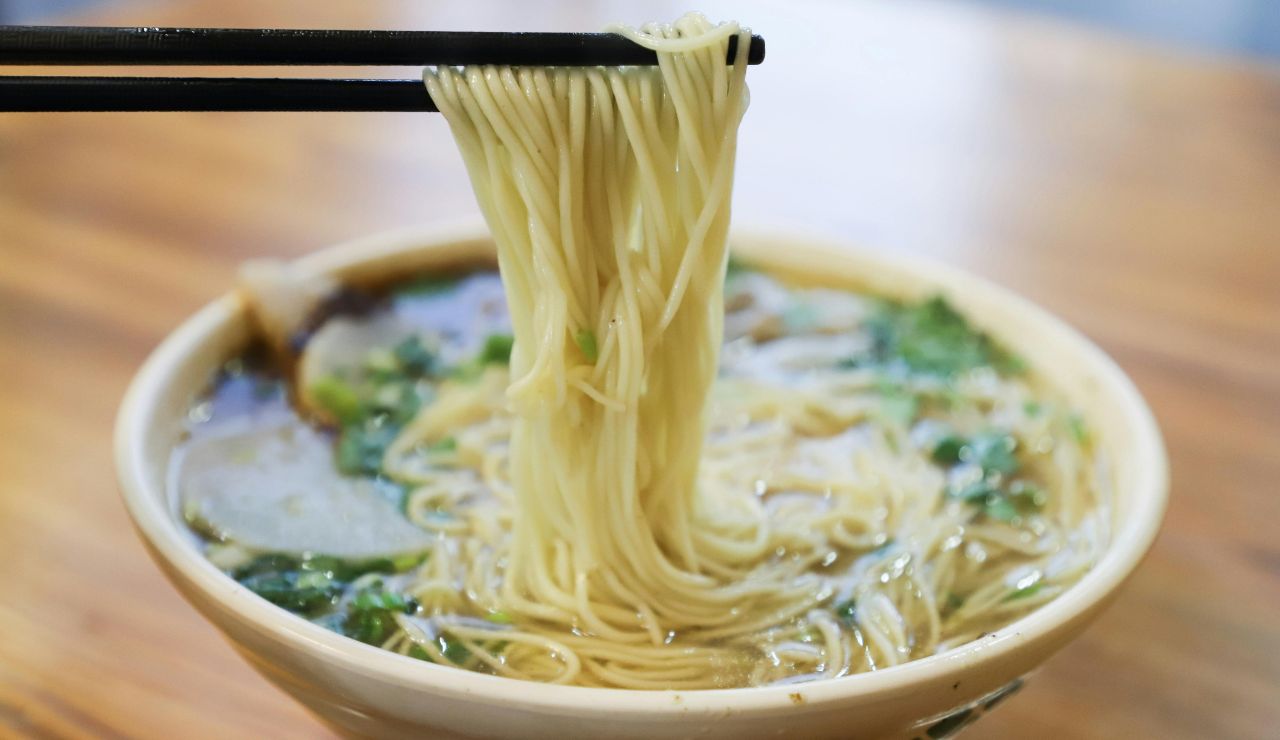
Fukuoka’s most famous dish is Hakata ramen, pork bone broth, thin noodles, and endless flavor. Locals swear by it, and visitors quickly understand why. You’ll find it everywhere, from tucked-away street stalls to polished ramen chains. Each shop has its twist, but that creamy, rich tonkotsu base always hits home. For a full experience, try a counter seat, slurp loudly, and pair it with a cold beer. It’s simple, soulful, and purely Fukuoka.
Ohori Park
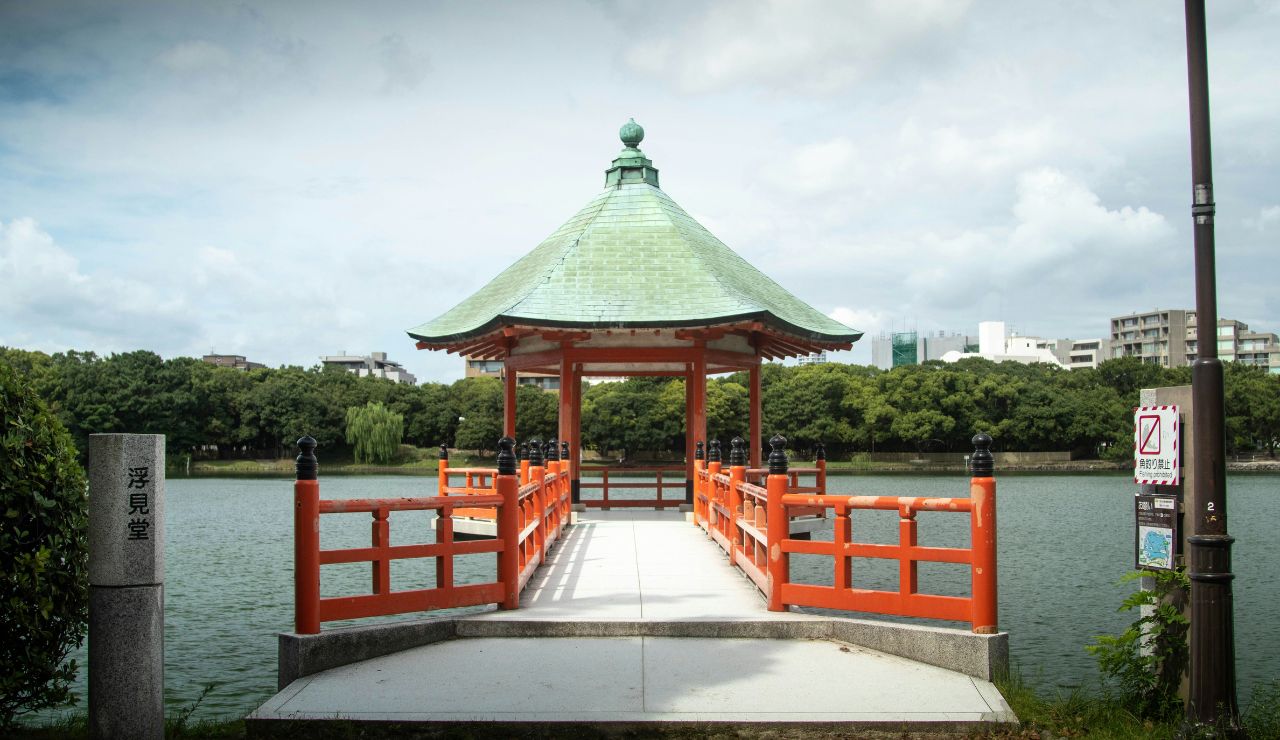
In the heart of the city, Ohori Park offers a quiet escape. Centered around a large pond with stone bridges and peaceful paths, it’s where locals walk, jog, picnic, and recharge. Rent a pedal boat, sip coffee by the water, or visit the nearby art museum. The park’s design blends Japanese and Western styles, giving it a relaxed, modern feel. It’s a perfect pause between temples, food stalls, and city buzz, a little breath of nature.
Canal City Hakata
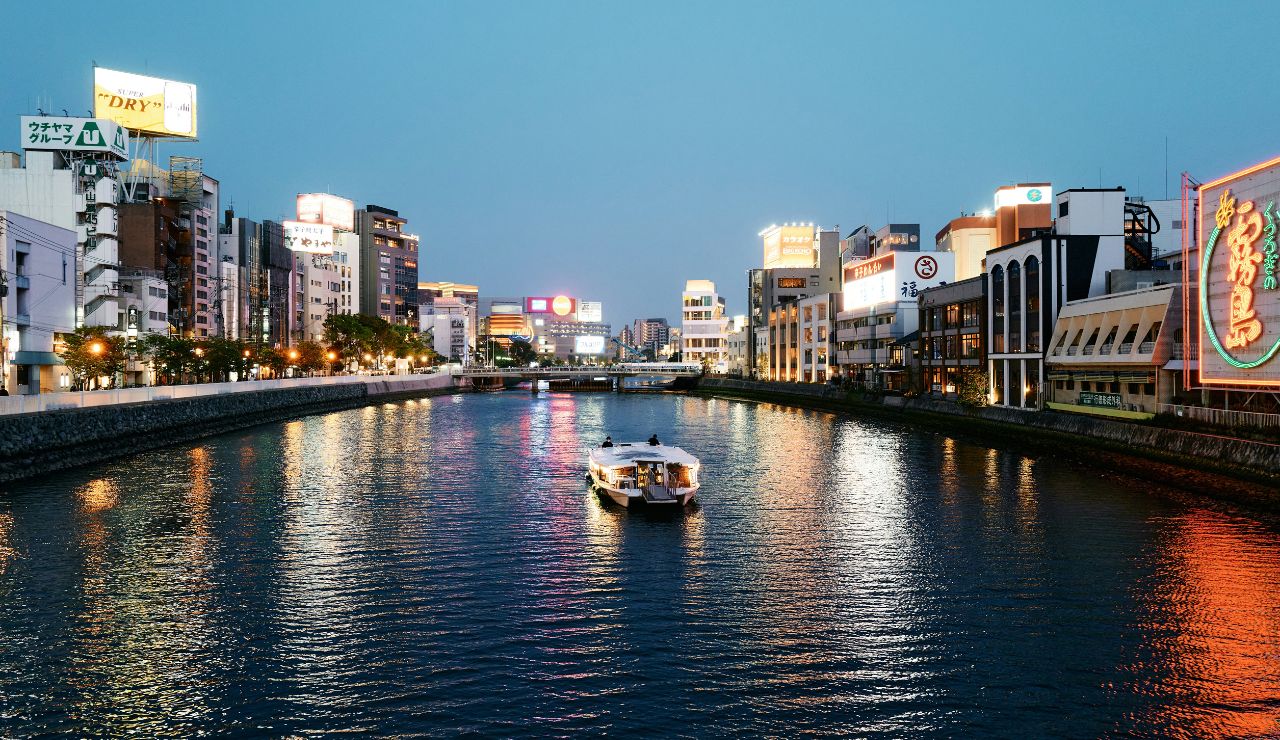
More than a mall, Canal City is a bold, colorful space packed with fountains, food, and fun. It’s built around winding canals, with bridges and light shows giving it a dreamlike feel. Inside, you’ll find everything: global shops, cinemas, hotels, and even a “ramen stadium” featuring famous noodle spots. It’s great on a rainy day or when you want a break from temples. Come hungry, stay curious, and enjoy a taste of modern Fukuoka style.
Fukuoka Castle Ruins
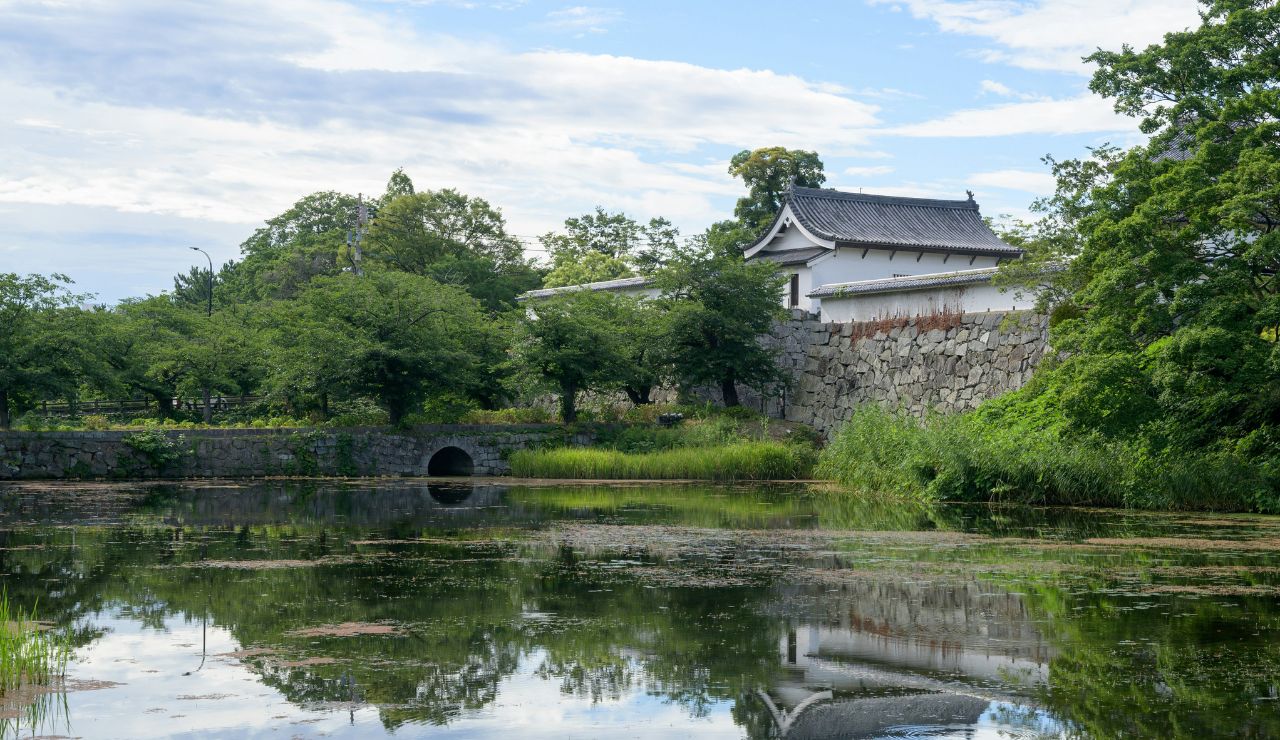
Once home to samurai lords, Fukuoka Castle is now a peaceful park filled with history and seasonal beauty. The stone walls and gates still stand proudly, and from the top, you get sweeping city views. In spring, cherry blossoms transform the grounds into one of the area’s best hanami spots. It’s not a full castle, but the ruins carry a quiet, noble energy. Walk the paths, snap photos, and feel centuries of stories underfoot.
Yatai Food Stalls
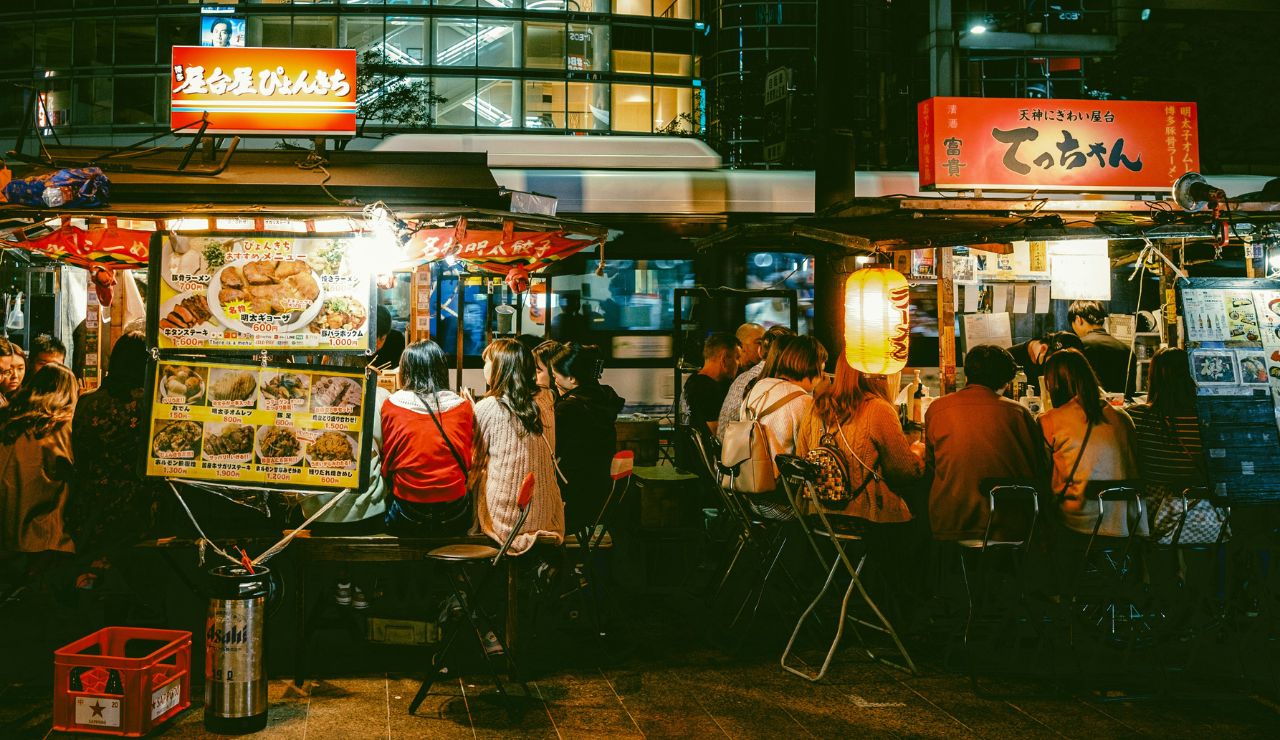
At night, Fukuoka’s yatai, open-air food stalls, line the streets with lanterns, laughter, and sizzling smells. These tiny kitchens serve up ramen, grilled skewers, oden, and more. It’s casual, cheap, and deeply social. You’ll sit shoulder-to-shoulder with locals and travelers, sharing food and stories. The vibe is friendly and lively, and the food always hits the spot. No Fukuoka visit is complete without at least one long, happy yatai meal under the stars.
Kushida Shrine
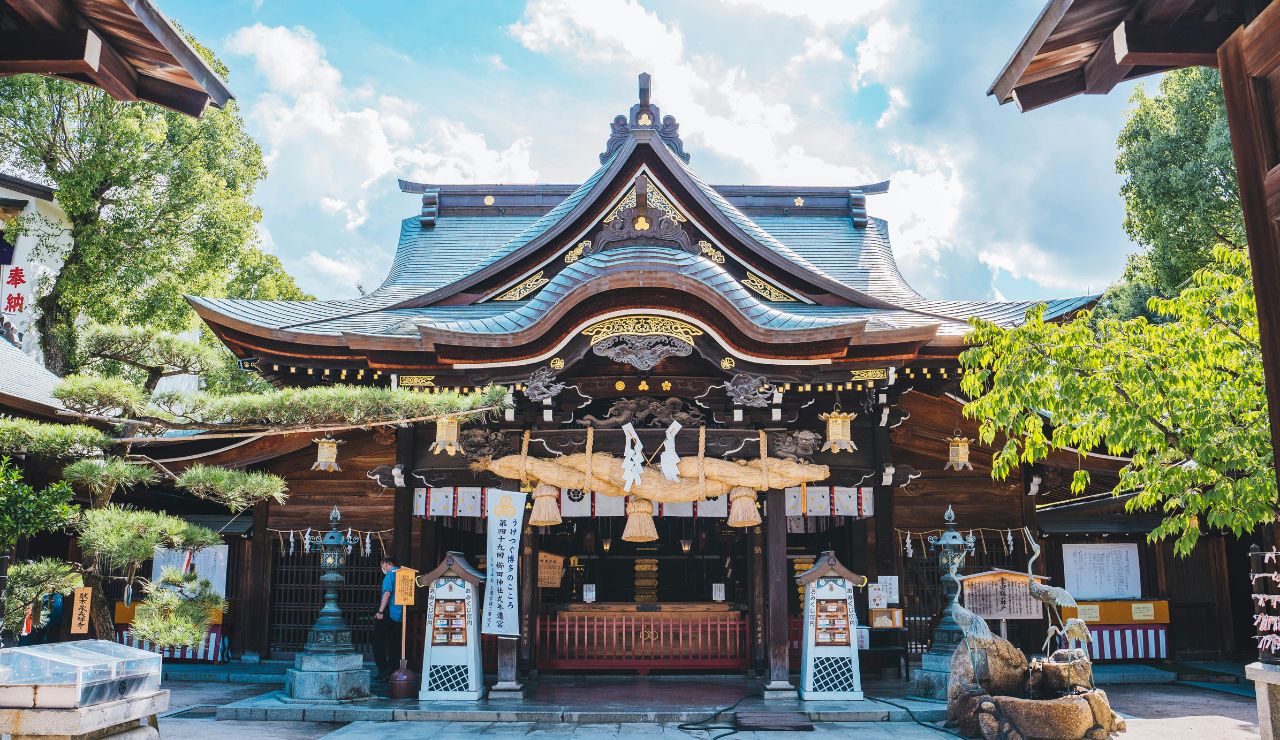
Tucked inside the city, Kushida Shrine blends sacred calm with cultural energy. It’s one of Fukuoka’s oldest shrines and the spiritual heart of the Hakata Gion Yamakasa festival, held each July. Giant floats used in the festival are displayed here year-round. Walk beneath the torii gate, clap your hands in prayer, and soak in the detail, wooden carvings, guardian statues, and age-old rituals. It’s a beautiful, peaceful stop full of history and heart.
Momochi Seaside Park
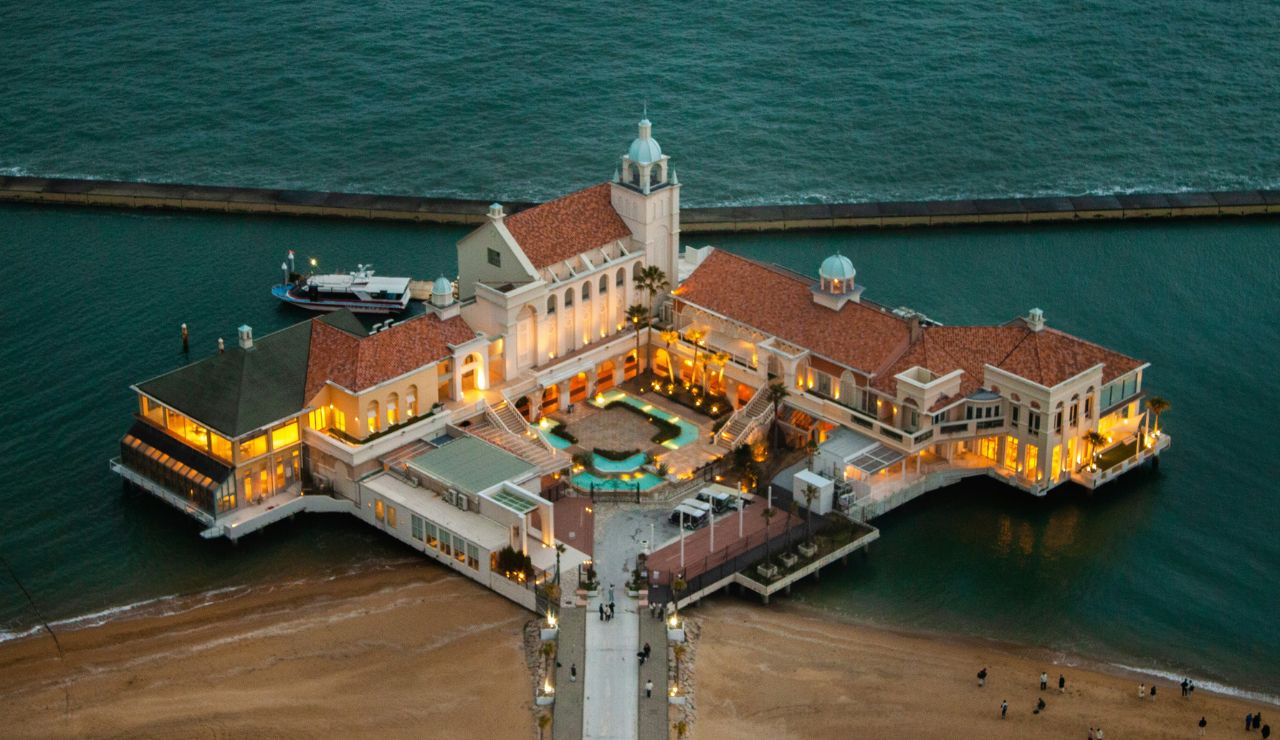
Modern, breezy, and built for relaxing, Momochi Seaside Park stretches along Fukuoka’s western coast. You’ll see joggers, volleyball games, and couples watching the sunset. Grab a coffee from a beachfront café or walk along the seawall to admire the views. Nearby is Fukuoka Tower, adding a futuristic edge to the skyline. With clean sand and open space, it’s a perfect place to breathe, rest, and feel connected to the sea and sky.
Maizuru Park
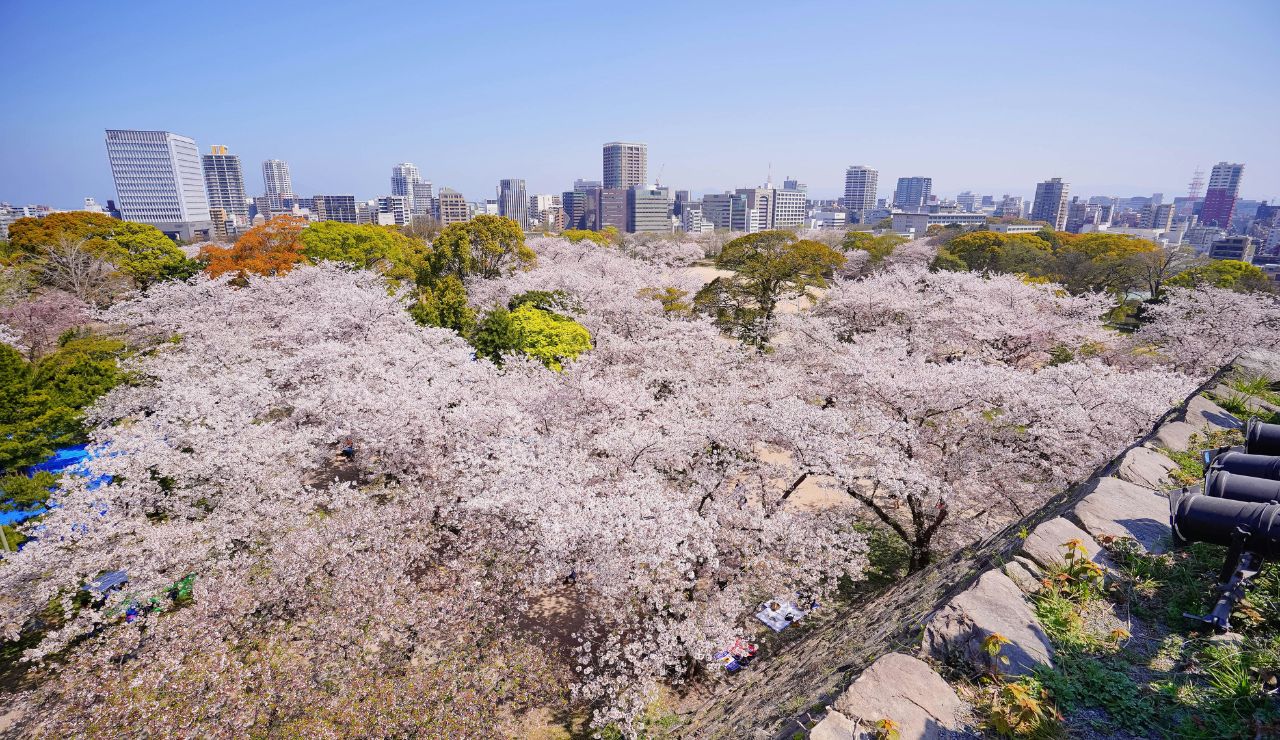
Maizuru Park blends nature and history with ease, built around the remains of Fukuoka Castle. In spring, cherry blossoms paint the grounds pink, drawing locals for picnics beneath the trees. The walking paths, old stone walls, and hidden viewpoints give the park a calm, almost timeless feel. It’s a favorite for couples and photographers alike, offering a quiet escape just minutes from downtown. You’ll find peace, charm, and a true local vibe here.
Yanagawa Canal Ride
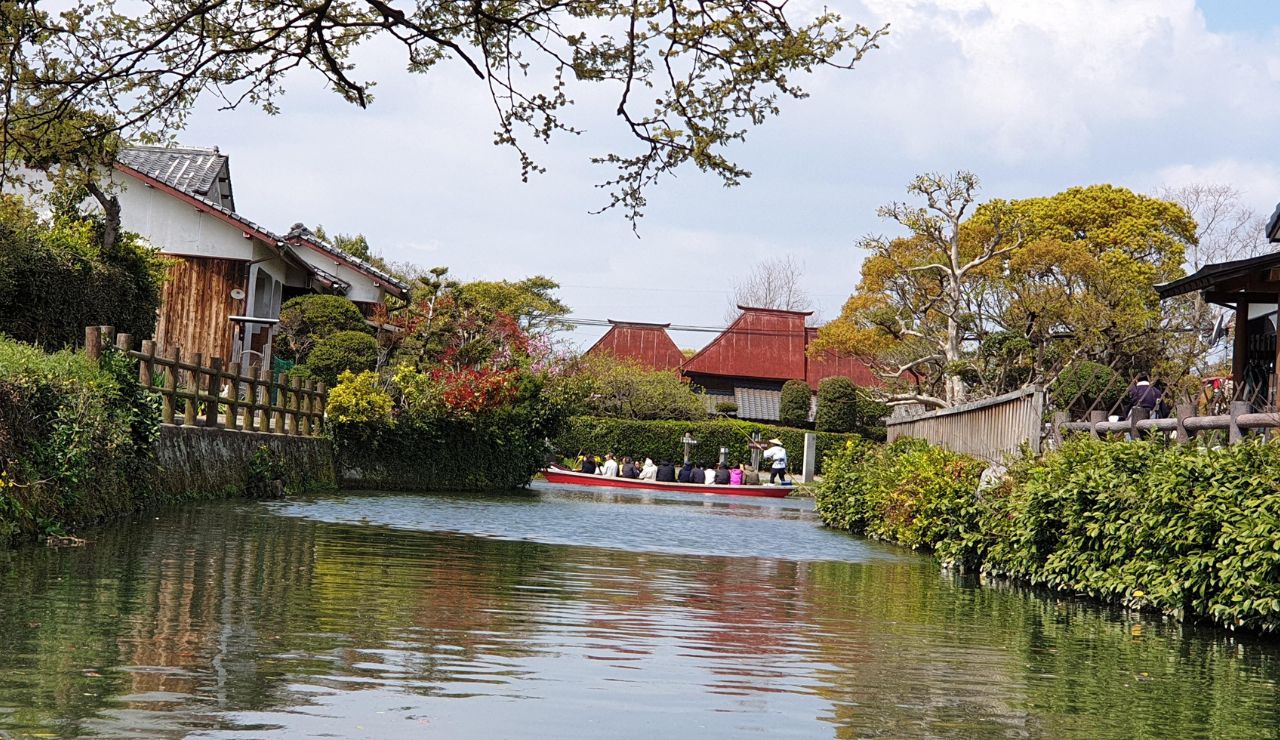
Just an hour from Fukuoka, Yanagawa is known for its quiet canals and slowboat rides. Sit back as a guide rows you through willow-lined waterways and past historic homes. In spring, cherry blossoms float in the water; in autumn, the golden leaves shimmer. Your boatman may even sing a folk tune as you drift. It’s peaceful, poetic, and full of charm. Pair it with a local eel lunch for a perfect half-day getaway.
Fukuoka Tower
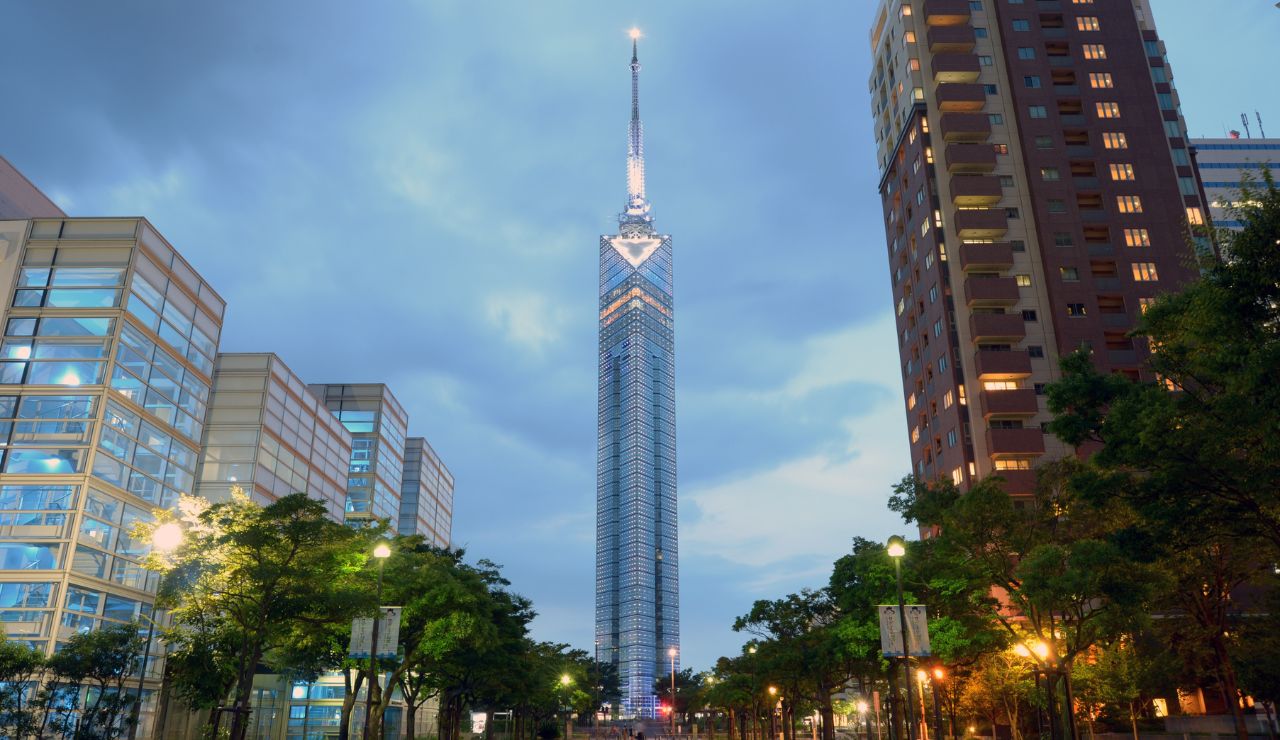
Rising 234 meters above the bay, Fukuoka Tower is Japan’s tallest seaside observation tower. Its mirror-glass exterior reflects the sea by day and glows at night. The top offers stunning views, city lights, coastal curves, and far-off mountains. There’s even a romantic “lover’s spot” with heart-shaped locks. Come at dusk for golden hour or after dark for a sparkling skyline. Either way, it’s a must for first-timers and photographers alike.
Dazaifu Tenmangu Shrine
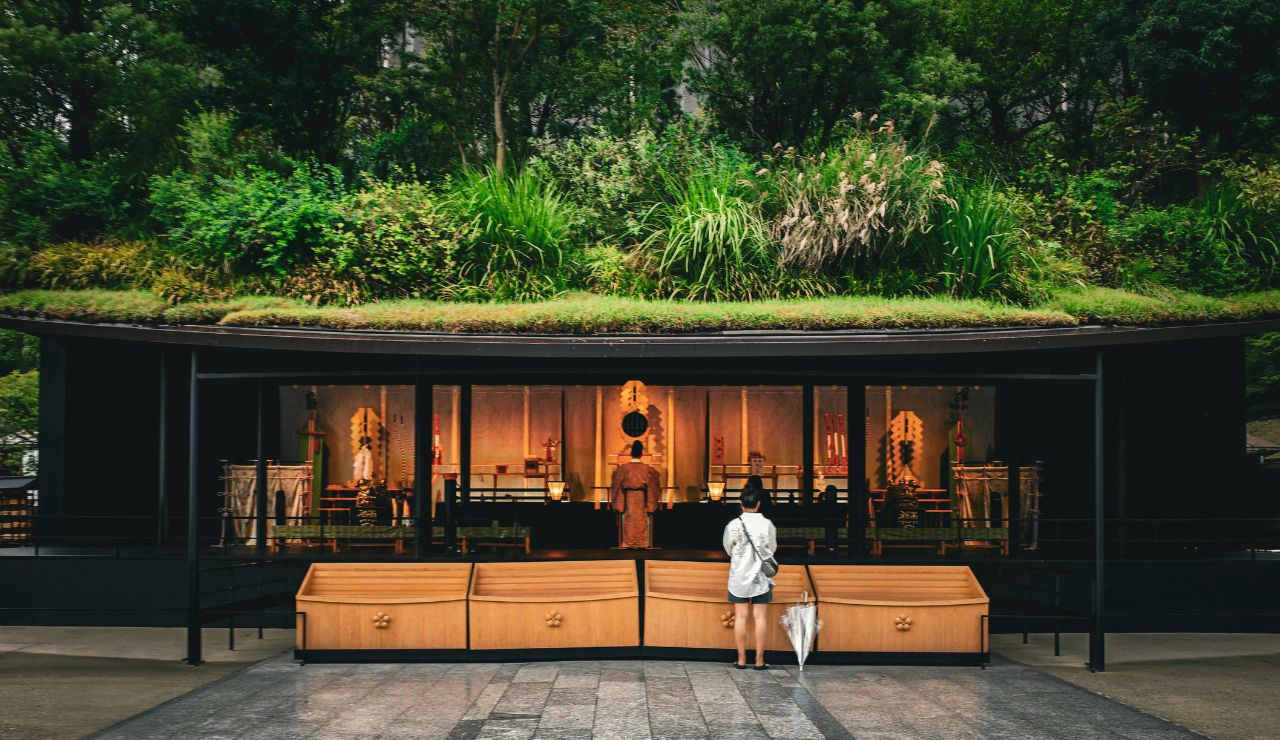
A short train ride from the city, Dazaifu Tenmangu Shrine is serene, spiritual, and deeply loved. Dedicated to the god of learning, it draws students, scholars, and curious travelers. The long path to the shrine is lined with shops, plum trees, and red bridges. In spring, pink blossoms bloom across the grounds. Step inside for a quiet prayer or stroll the nearby museum and gardens. It’s a soulful stop rich with beauty and meaning.
Local Markets
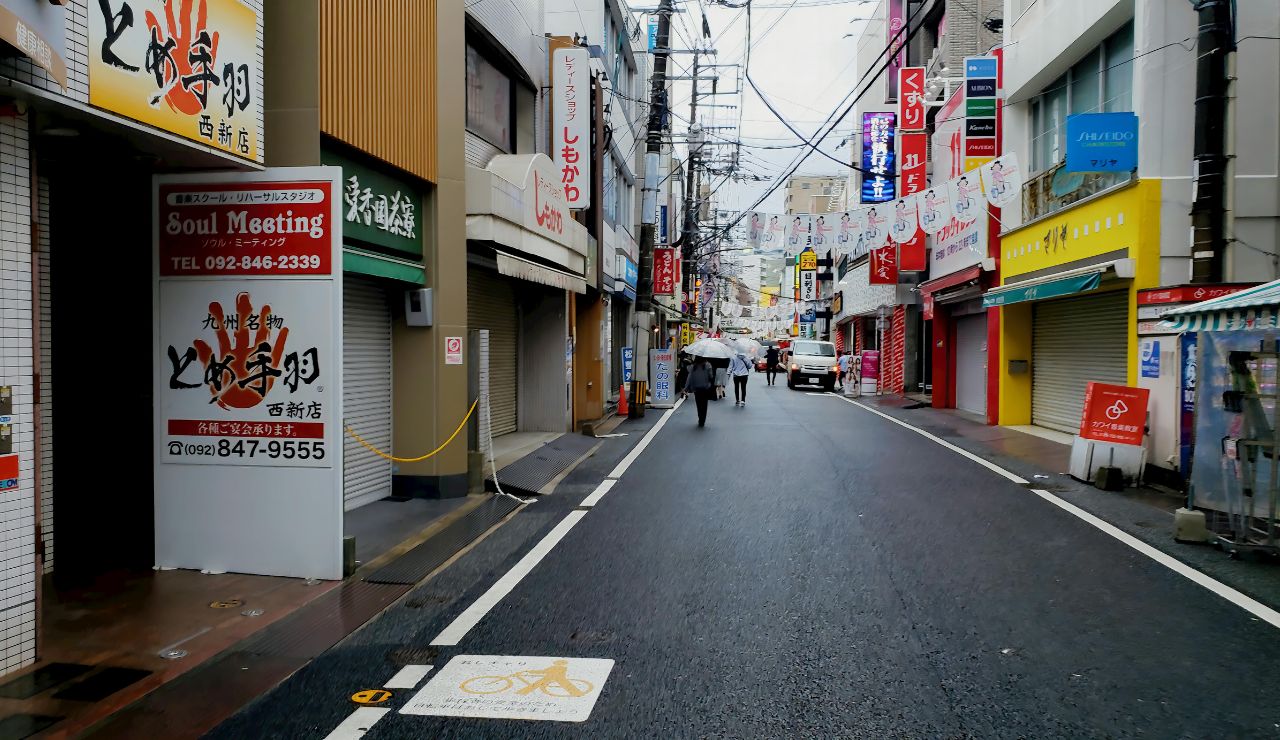
For a real taste of daily life, head to a local market like Yanagibashi. Stalls brim with fresh seafood, vegetables, and handmade snacks. Vendors call out their deals, customers chat over tofu or pickles, and the smell of grilled fish fills the air. Try a rice ball, sample a street sweet, or buy ingredients for a hotel-room picnic. It’s fun, authentic, and surprisingly intimate, a slice of Fukuoka that locals never take for granted.